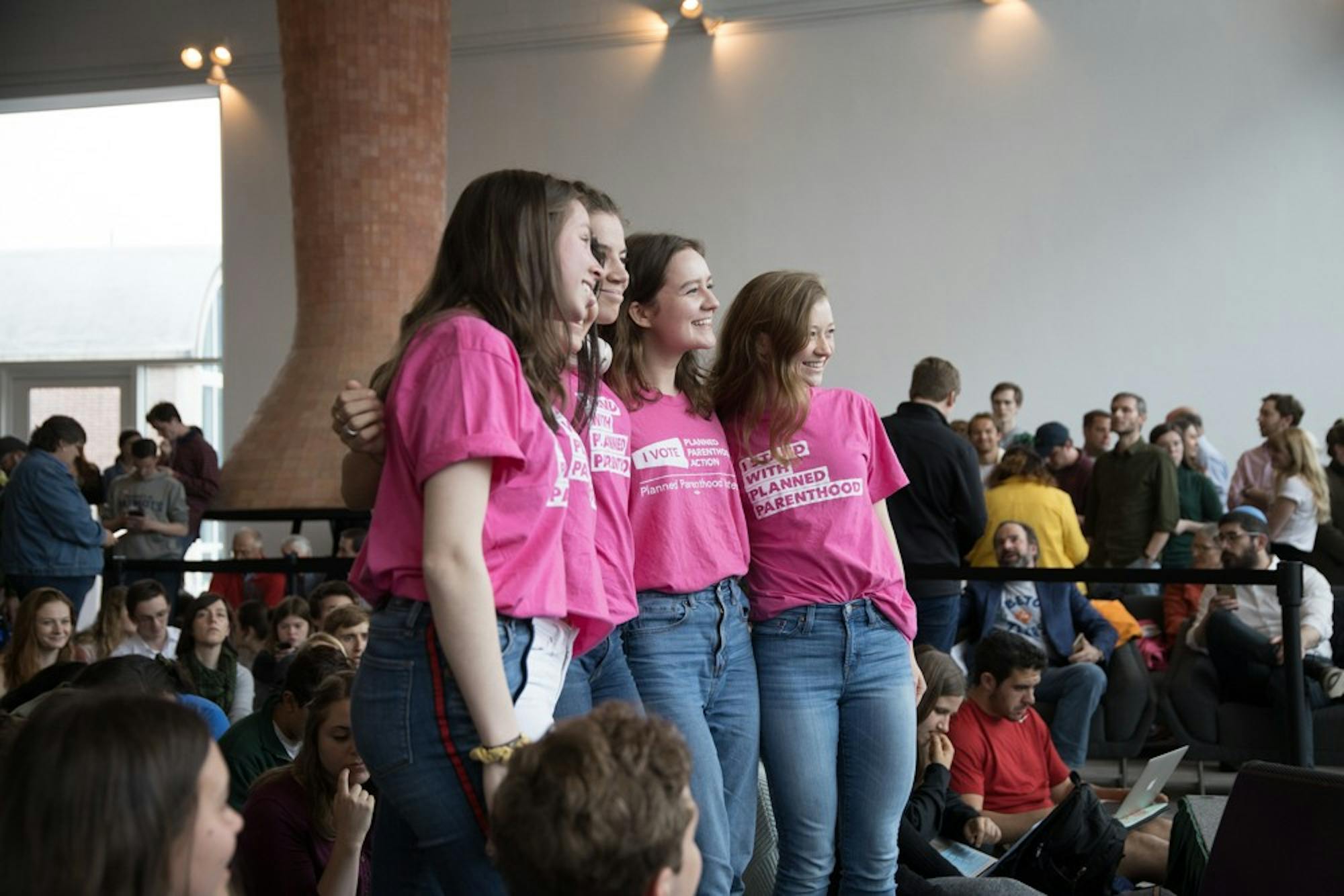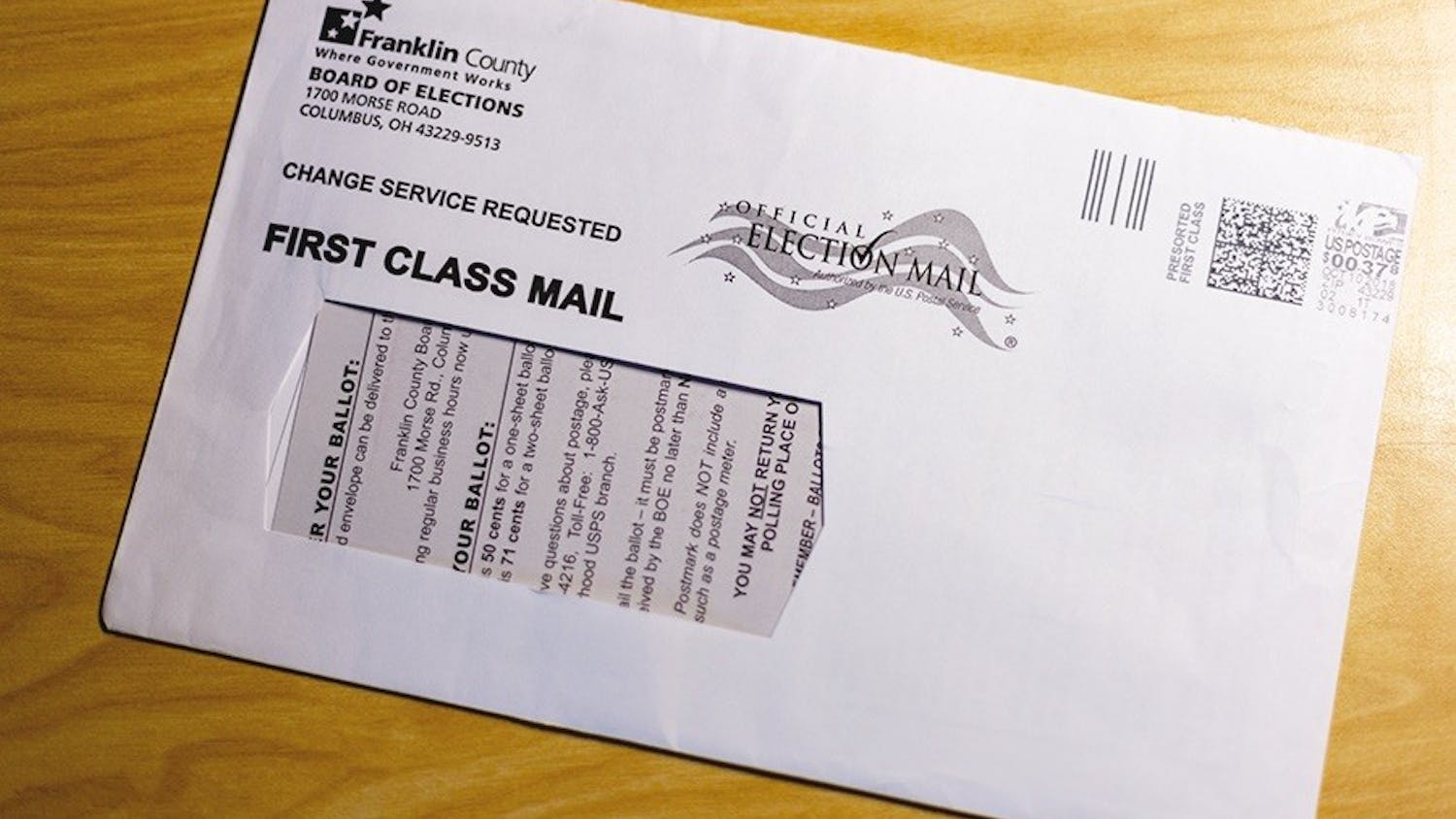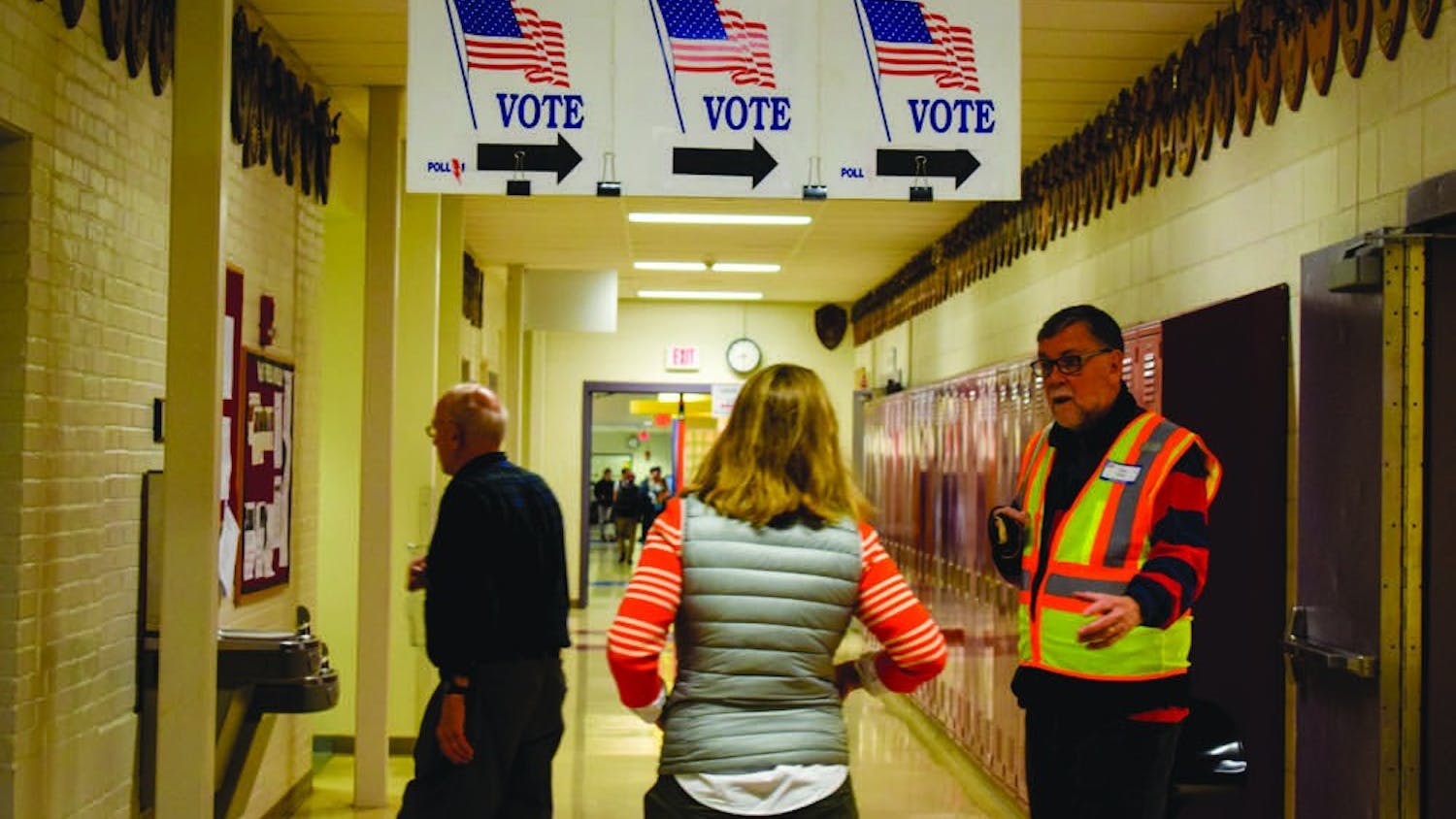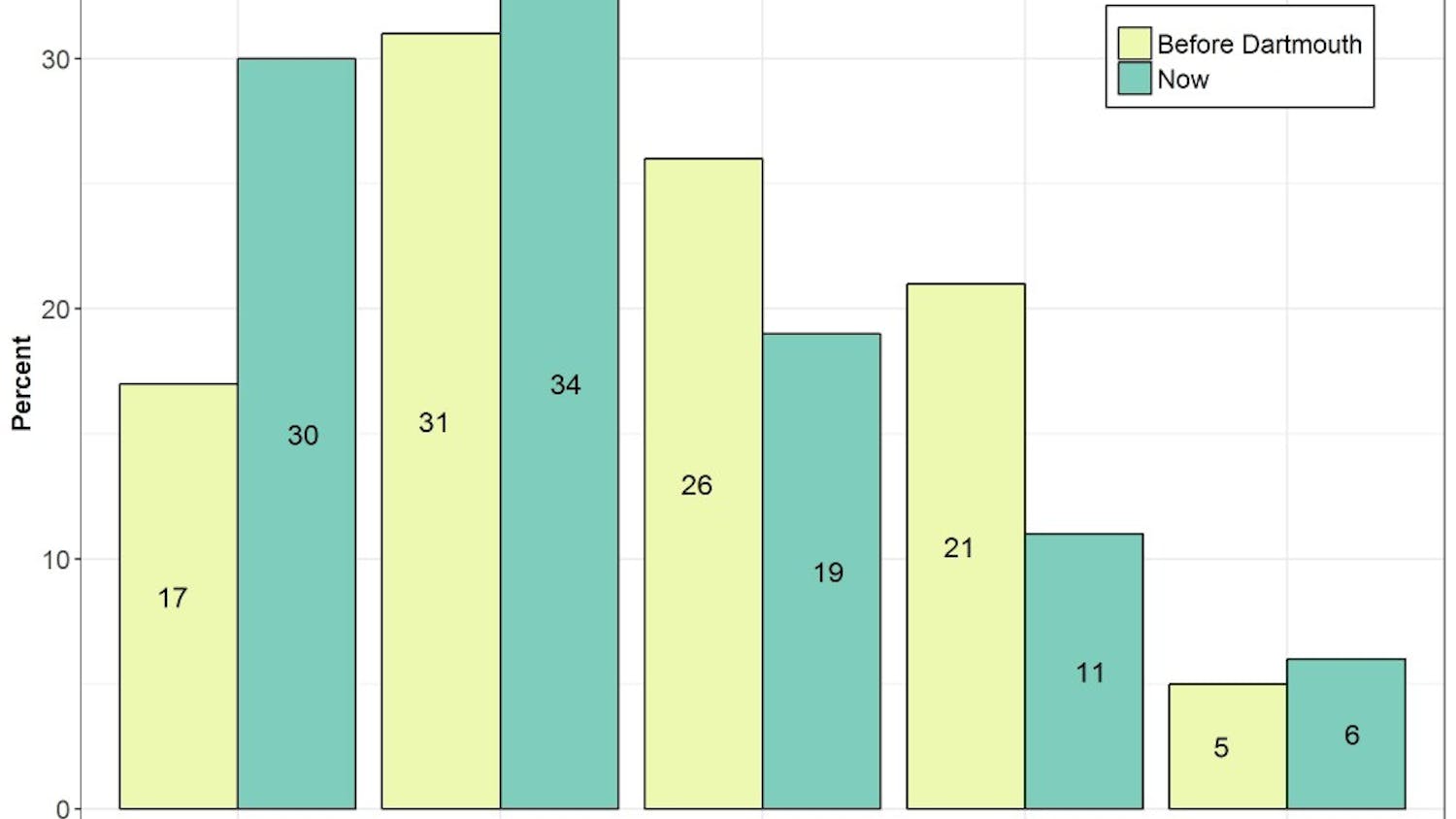Coming to Dartmouth, I had always known it was a school lauded for its political accessibility, as countless prominent figures across the political spectrum — both New Hampshire-specific and also on the national scale — often come to Hanover specifically just to engage one-on-one with the Dartmouth student body.
As the Class of 2019 comes to the end of its time at Dartmouth, I was curious to hear how this particular aspect of the College had actually shaped the seniors’ political views or how the vibrant political climate of Dartmouth itself had influenced their overall undergraduate experiences. This year, I have found it particularly fascinating to see how national politics manifests itself at the College on the Hill, especially with the 2020 presidential election in the back of everyone’s minds. Other than the Class of 2020, the seniors are the only class left on campus that actually experienced the last presidential election while at Dartmouth.
Catherine Rocchi ’19, an environmental studies major from New York, said that the day President Donald Trump was elected — which, coincidentally was her birthday — was particularly memorable in her Dartmouth experience because of the campus’s extreme reactions to the election results.
“I remember right after Trump was elected, it seriously felt on campus as if someone had died,” Rocchi said. “People were wearing black and speaking to each other in very hushed tones, if at all.”
William Jelsma ’19, an engineering and Middle Eastern studies major from Dallas, TX, said he remembered clearly the day of the 2016 election because of the divisive effects the election results seemed to have on Dartmouth’s student body.
“I think the most polarized campus ever was for me was during the election,” Jelsma said. “Most of campus was really broken up about it, and some classes were even canceled. I remember even one of my professors saying that it was the worst day for America since Reagan was elected.”
Jelsma expressed disappointment at the way political frustrations can sometimes play out on campus, particularly during times of national turmoil.
“Sometimes on campus it becomes a lot less of having well-reasoned discussions about the reasons people believe the things they do and more about vilifying the other side, whether it’s on the left or the right,” Jelsma said. “But of course, that’s very much on a person-by-person basis.”
Knowing nothing about New Hampshire before coming to Dartmouth, I have been surprised about much I have been exposed to local politics over the course of the school year and also how much I have been encouraged to take part in it.
Rocchi and Jelsma shared different perspectives and illustrated different facets of the issue of voting outside of one’s home state.
Coming from a primarily liberal state, Rocchi said she felt that her vote did not hold much — or arguably, any — power in the presidential election. Now that she attends Dartmouth, Rocchi said she feels inclined to vote as a resident of New Hampshire, although she knows she votes from a different perspective than a long-term resident of the state.
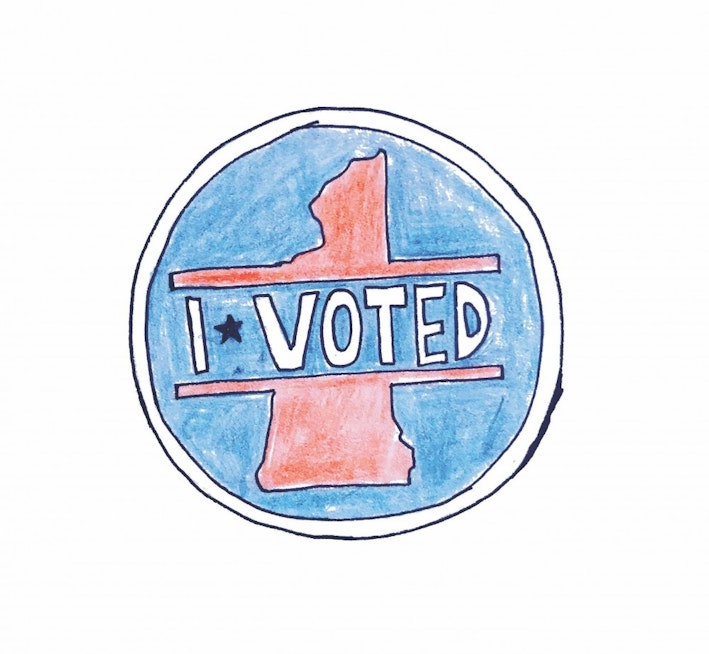
by Sunny Tang / The Dartmouth Staff
“There’s been a lot of interesting conversation about whether Dartmouth and other university students who aren’t from New Hampshire should be voting in these local elections,” Rocchi said. “I personally feel justified in voting in New Hampshire anyway because I think the electoral college process is problematic and I am in favor of having people’s voices count in an election where they otherwise might not in another election.”
Jelsma, on the other hand, said that he chose to remain a voter in his home state of Texas because he realizes that college students are only temporary residents of the Granite State.
“I specifically try to avoid getting myself in local politics because I don’t think students should particularly be voting in New Hampshire,” Jelsma said. “In my mind, we’re only here for four years, and unless we’re planning on getting a job here and actually living here, Dartmouth is really just a little bubble that’s not really much like the rest of New Hampshire at all.”
Regardless of background, political affiliation or any other defining factor, the seniors felt that their time at the College has presented them with opportunities to challenge their political views in productive and meaningful ways, encouraging them to think critically about why they believe what they believe.
For example, Lauren Bishop ’19, a history major and public policy minor from Jacksonville, FL, said that both her academic and personal experiences at Dartmouth added new facets of political understanding that she would otherwise not have gained from staying in her hometown.
“I went to a high school that was majority white and very heteronormative, which shaped my perceptions of politics and what I believed to be important political issues,” Bishop said. “Through my experience here at Dartmouth and the conversations I’ve had with my peers, I think my understanding of a lot of political issues is now more nuanced, and I better understand the impact that different political decisions have on groups that don’t directly impact me.”
Furthermore, Bishop mentioned that after four years at Dartmouth, she has come to the humble realization that she does not yet fully understand certain political issues.
“Coming out on the other side of Dartmouth, I now know that my education from the South left a lot to be desired,” Bishop said. “I also know more now about what I don’t know, so I’ve really tried to take even more classes on race and gender and intentionally continue my personal education on these issues.”
While Bishop had a growth experience that supplemented who she had been coming into Dartmouth, Rocchi said that within a few months at Dartmouth, her political views had profoundly changed.
“I grew up in an incredibly centrist environment, viewing ‘radical’ as a word that only applied to terrorists and activism as something to be looked down upon,” Rocchi said. “Within a few months at Dartmouth, particularly through being involved in Divest Dartmouth, my views of those terms completely changed and I began to identify with them and view them as positive and necessary things, given the nature of the environmental crisis.”
Rocchi also said that these changes in her political perspective proved a transformative and meaningful part of her Dartmouth experience.
“Both from Divest [Dartmouth] and from the course of study I’ve chosen to pursue, I’ve learned about issues and ideas that not only inform my political involvement but also guide how I move through the world as a person,” she said. “One of the main reasons I like myself a lot more now than I did the person I was as a senior in high school is because I’m now so much more aware.”
Joey Torsella ’19, a philosophy major from Philadelphia, PA, said he was strongly invested in politics prior to Dartmouth. However, Torsella noted that over his four years here, he began to concern himself less with politics, realizing the divisive effects it often has on human-to-human interactions.
“Although politics is important, I think over my four years here, I’ve realized there’s something wrong with being so focused on politics to the detriment of doing the good that you can for others,” Torsella said. “I’ve seen how politics has the potential to distort genuine human relationships, so coming to the realization of trying to set aside our differences and just do good has been a huge change in perspective for me.”
Sandwiched between two pivotal presidential elections, the seniors’ time at Dartmouth has allowed them to approach political issues in more multifaceted and well-informed ways. From choosing whether to vote locally to having serious conversations about the leaders of our nation, Dartmouth students certainly engage critically with politics.

